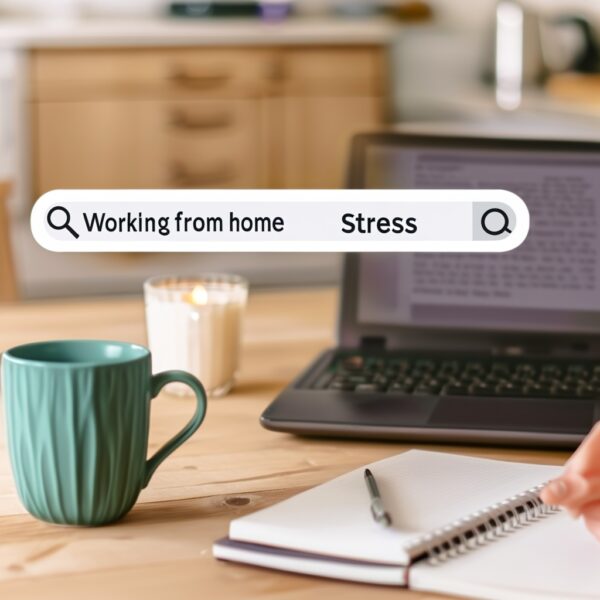The Mental Health Crisis You Can’t Afford to Ignore
If you’ve searched “work from home health”, “WFH mental health”, or “WFH wellbeing tips” recently, you’re far from alone. In fact, 40% of Londoners are now actively seeking mental health support as a direct result of remote working.
What began as a global experiment in flexibility has quietly become one of our time’s most urgent workplace challenges.
And for businesses? The cost is mounting fast.
Burnt Out, Disconnected, Exhausted: The Reality Behind the Screens
Working from home has fundamentally reshaped how we live and work—but not all for the better. With kitchen tables now doubling as desks and commutes reduced to the walk from bed to screen, the lines between work and rest have almost disappeared.
The results speak for themselves:
- 💀 Burnout is rising due to longer hours and lack of boundaries
- 💬 Disconnection is damaging team cohesion and trust
- 🧠 Mental fatigue is becoming the new normal
And the numbers confirm it:
- 🔹 42% say WFH harms their mental health
- 🔹 67% feel disconnected from colleagues
- 🔹 56% struggle to switch off outside working hours
This isn’t a “phase”. It’s an unfolding mental health crisis—and it’s already affecting productivity, retention, and business performance.
The Silent Saboteur? Untrained Managers
Here’s the truth: your people may be struggling, but your managers might not know how to spot the signs, let alone respond effectively.
And they’re not to blame.
According to research by the Small Business Charter:
82% of UK managers have received no formal training.
Many have been promoted for technical skills—not people skills—leaving them unprepared for the emotional and psychological needs of remote teams.
And the situation is worsening. WorkTango reports that:
Managers today receive 19 fewer days of training than five years ago.
In a remote-first world, where emotional intelligence and communication are everything, this gap is a huge risk.
Why Managerial Training Pays Off (Literally)
Still not convinced? Let the data do the talking:
- 📈 Organisations with strong training programmes see a 37% increase in productivity
- 🔁 Employees with well-trained managers are more engaged and less likely to leave
- 💸 Companies that invest in employee training report 24% higher profit margins
(Source: BuildEmpire)
When your managers are trained, confident, and supported, they don’t just lead better, they create a culture of trust, resilience, and performance.
What You Can Do Today
So what does good leadership look like in 2025?
Here are five evidence-backed strategies to protect your team and performance:
1. Invest in Managerial Training
Equip your managers with the tools to lead remotely—covering mental health awareness, boundary setting, and compassionate leadership. It pays for itself.
2. Create Space for Open Dialogue
Use anonymous surveys and structured wellbeing check-ins to give employees a safe space to speak up—before it’s too late.
3. Support Digital Boundaries
Encourage real rest. Introduce “no-meeting” hours, limit after-hours emails, and promote the use of tools like digital detox settings and status indicators.
4. Rethink Flexibility
True flexibility is about more than WFH—it’s about autonomy, trust, and realistic workload expectations. Give your team control, not just permission.
5. Lead By Example
If you’re online at midnight, your team feels it. Modelling healthy behaviours is one of the most powerful things you can do as a leader.
Ready to Lead Differently?
If your team is quietly burning out, you don’t need a quick fix—you need a wellbeing strategy that actually works.
That starts with your leaders.
🎯 Book a 1:1 Leadership Consultation
Let’s talk about how to embed mental wellbeing into your culture and give your managers the tools they need to thrive.
👉 Book a Strategy Call or Let’s Talk Wellbeing hello@mikelawrence.co.uk
Because your people aren’t just your team—they’re your business.
P.S.
Mental health isn’t soft—it’s strategic. And if you’re not investing in it, you’re already paying the price elsewhere. Let’s change that.
Mike Lawrence: Your Guide to Health & Wellbeing
I’m Mike Lawrence, a passionate advocate for mental health and wellbeing. After overcoming significant health challenges, including brain surgery, I’ve dedicated myself to a journey of self-improvement and helping others thrive. From heart-pounding skydives for charity to soul-enriching travels in Thailand, my experiences have shaped my approach to holistic health.
I love sharing the lessons I’ve learned from these adventures and the powerful audiobooks I devour. Let’s explore the paths to better mental and physical health together. Embrace life’s adventures with enthusiasm and resilience, and remember—you’re never alone on this journey!
Feel free to email me at hello@mikelawrence.co.uk or connect with me on LinkedIn. For more in-depth insights and inspiring stories, read my latest blogs here. Together, let’s create a healthier, happier future!





